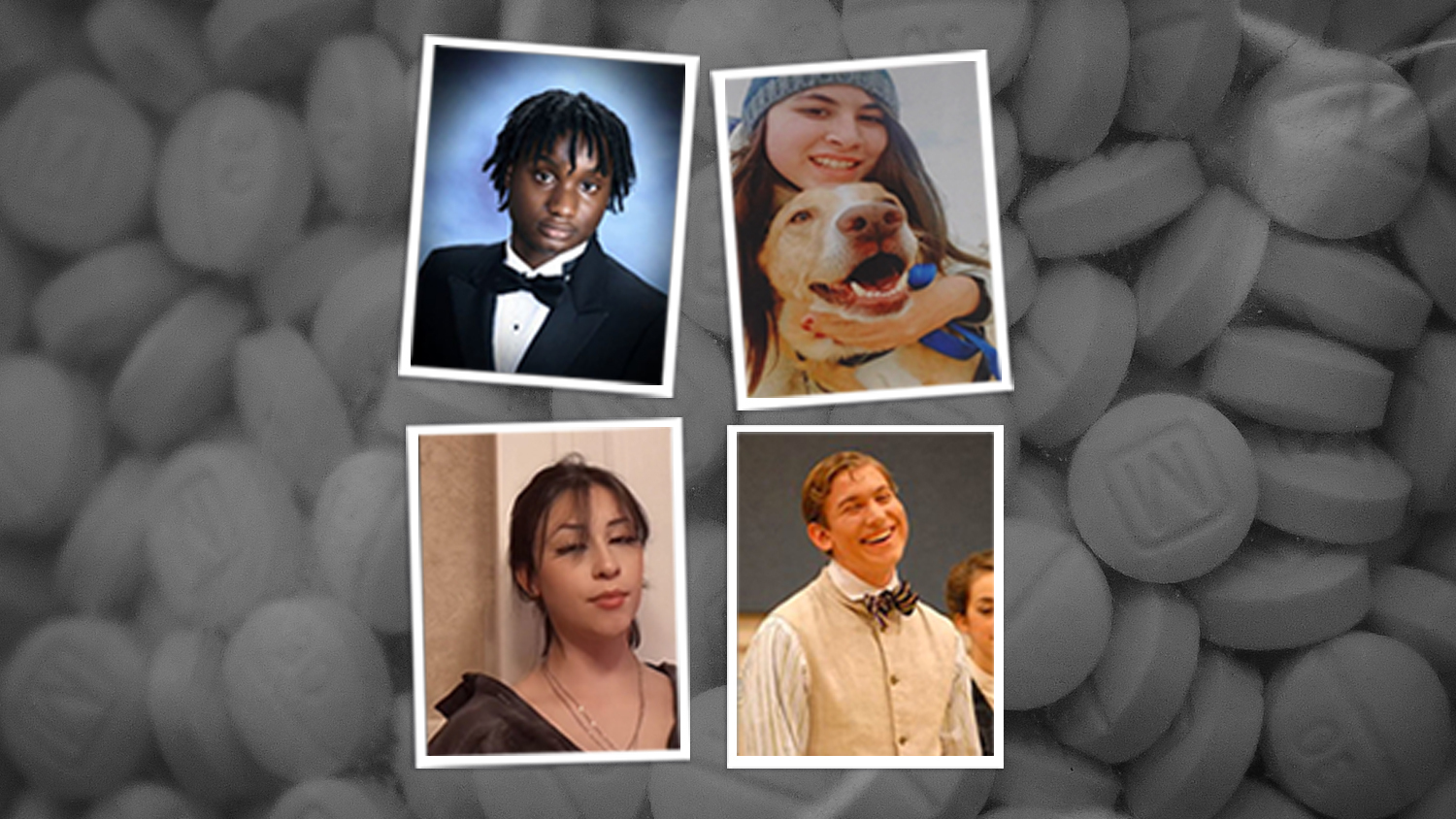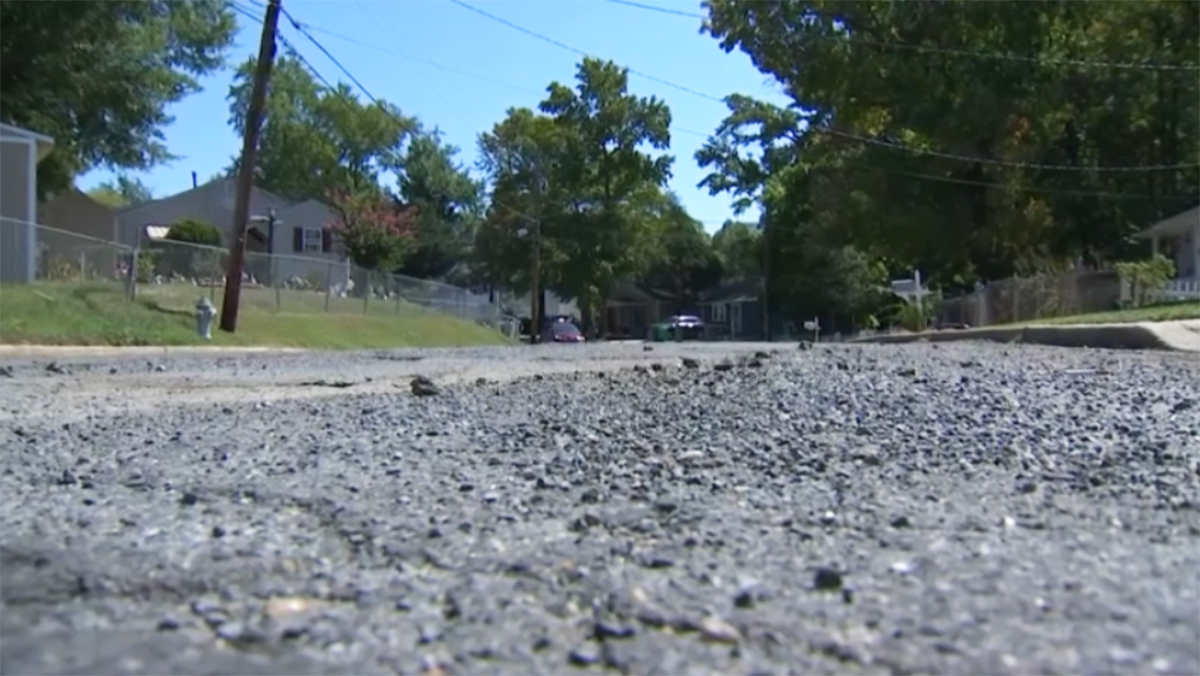A fender bender wouldn’t normally catch the attention of the News4 I-Team. But what happened to Tamara Meyer wasn’t normal.
Sitting on the back porch of her home in Potomac, Maryland, Meyer recalled what happened this summer as she visited a mall in Montgomery County.
"All of a sudden I was jolted," Meyer said.
She was parked in the mall parking lot when another car crashed into hers.
“I couldn’t believe what I was seeing,” she said. “I saw no one in the car. There was no driver, no passenger. It was an empty car that was driving itself into my car.”
She said the Tesla scraped the back of her car as it pulled out and “kept going after impact.”
Photos of the Tesla given to the I-Team by the driver showed it had more extensive damage. As for the Tesla driver, “He was shocked as I was,” Meyer said.
“It’s not supposed to do this!” she recalled him saying.

The operator of the Model Y Tesla told News4 he was using a feature on the app he had never used before called Summon. With the push of a button, the car is supposed to come to you and park itself.
Tesla put out an updated version called Smart Summon, which allows the car to steer itself and find the driver within 200 feet using the phone’s GPS.
But there have been some roadblocks. Searching online, the I-Team found drivers trying it out with some bumpy results – from running stop signs to hitting signs to getting into close calls with other cars.
‘Not ready for prime time’
On its website, Tesla points out the apps are a beta feature, meaning they’re still in development.
“They're just not ready for prime time,” said Michael Brooks with the Center for Auto Safety.
Brooks told the I-Team he believes releasing any beta feature to the public is dangerous.
“They're releasing them too early before they've been, you know, validated as safe – before they've been validated to work properly," he said.
The National Highway Traffic Safety Administration (NHTSA) labels the Summon apps as "Level 2 advanced driver assistance systems," which also include features like cruise control and lane centering.
Companies are required to report crashes with vehicles that have the technology.
There have been 932 crashes since 2023 with vehicles that had Level 2 features, though the data doesn't include which feature, according to the NHTSA’s most recent standing general order. Tesla greatly outnumbered other manufacturers with reports.
The I-Team saw Smart Summon in action
The News4 I-Team wanted to see how the Smart Summon feature works. We traveled to the Insurance Institute for Highway Safety, the organization known for safety ratings and crash testing vehicles.
David Aylor, vice president for active safety testing, demonstrated using one of their Tesla Model 3 vehicles.
“I’m going to open the app and open the summon feature,” explained Aylor. “I’m going to hit ‘Come to me.’ As long as I hold this button down, the vehicle will move. If I want the vehicle to stop, I need to release the button.”

On that first try, the car, in a parking space located about 200 feet from the I-Team, came without any issues. When Aylor added a simulated pedestrian, the car drove around it.
But not all the demonstrations went as smoothly. During one try, the Tesla turned toward another car as it made its way between two rows and didn’t seem to know which way to go.
Another time, Aylor stopped the vehicle when it turned toward an SUV. On the final try, the Tesla hit the curve.
"The whole concept of beta is, it’s still learning, Tesla is still learning, right? It’s using these scenarios to learn from that,” Aylor said.
Tesla did not respond to the I-Team's emails. But online the company says when owners use the apps, they must familiarize themselves with limitations of Smart Summon, that the app is intended for use only in parking lots and driveways on private property, and that the operator must maintain a clear line of sight and continually monitor the vehicle.

‘There’s just no replacing an attentive and engaged driver’
Meyer’s crash in the mall parking lot was a first for her insurance agent and the Tesla driver’s insurance agent. Crashes like these are raising questions, especially in the insurance industry, when there’s no one physically behind the wheel.
“We’re sort of in dress rehearsal for that now because of all these different features that are there,” said Bob Passmore with Property Casualty Insurers Association of America.
Something every expert told the I-Team is even as technology improves our experience on the road, the driver must be in control.
“There’s just no replacing an attentive and engaged driver, whether you’re holding an app in your hand or something in the car or you’re sitting in the driver’s seat," said Passmore.
The Summon and Smart Summon apps in older models uses ultrasonic sensors and cameras to bring your car to your location. In September, Tesla released a newer version of the Summon app called the Actual Smart Summon. It uses just the vehicle’s cameras, since it no longer uses the sensors.
Reported by Susan Hogan, produced by Rick Yarborough, and shot and edited by Jeff Piper



